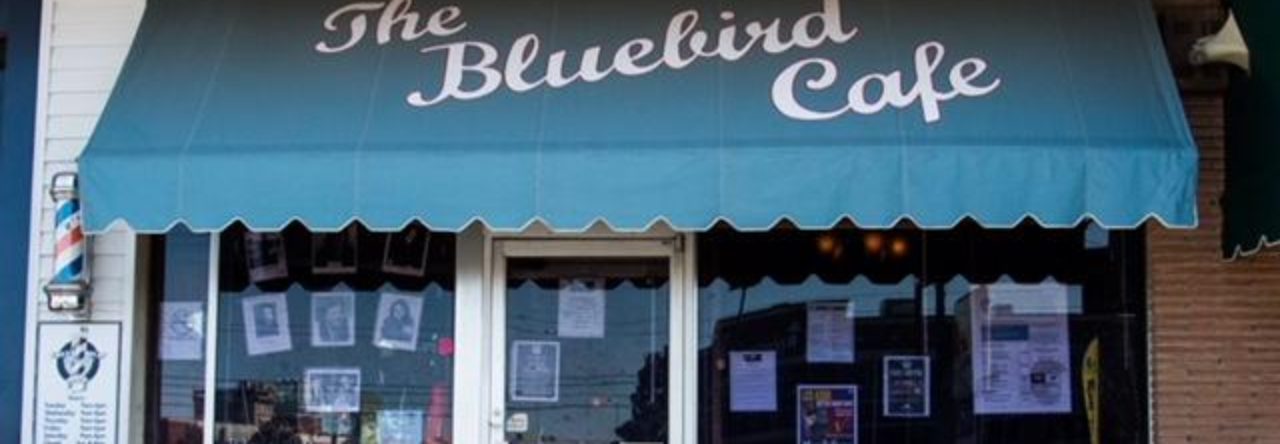Two documentaries at the Nashville Film Festival caught my eye on Sunday and Monday, September 22 and 23. The first was “They All Came Out to Montreux,” followed by “The Black Sea.”“They All Came Out to Montreux” was a love letter to the man responsible for creating, founding and sustaining the Montreux Jazz Festival, Claude Nobbs. Oliver Murray created this documentary as a tribute to Claude Nobbs. Nobbs dedicated his entire life to making Montreaux, Switzerland, his home town, a premier destination for the very best musicians in the world. Claude and his partner showcased the Shakespeares and Picassos of Jazz and, over time, branched out to include other forms of music.
Nobbs was so devoted to musicians and helping preserve their work that he and his partner since 1987, Thierry Ansalm, digitally preserved every concert ever given there from 1970 on. (There are even a few from 1968 and 1969). They created a huge archive collection of the premier performers of the past 60 years. On this documentary there were many famous musicians either performing or talking about Claude—a wealth of talent from jazz, rock, blues, and beyond.
CLAUDE’S INFLUENCE
Claude was universally loved by all the musicians whom he encountered, although some of the locals in Montreux (Switzerland) on Lake Geneva (the Swiss Riviera) were not keen on having a bunch of hippies pitch tents on their well-manicured lawns. There was even an arrest of Claude based on his homosexuality that represented a trumped-up charge designed to stop his quest to make Montreux into a must-stop destination for World Class musicians.
Quincy Jones produced the festival for at least 3 years, with Miles Davis appointed as an honorary greeter. The voices we hear talking about the legendary Claude Andre Nobbs include Keith Richards of the Rolling Stones, who lived nearby for some time and considered Claude’s archived music collection an oasis in the desert. Here is a (partial) list of the renowned names who either testify to Claude’s supremely enthusiastic vision or actually perform onscreen in short vignettes: Jack White; Wyclef Jean, George Clinton, Lizzo, Questlove, Carlos Santana, James Brown, Marvin Gaye, B.B. King, Ray Charles, Roberta Flack, Nina Simone, Herbie Hancock, Van Morrison, Sting, Carol King, Queen, AC/DC, Deep Purple, Muddy Waters, Aretha Franklin, Ella Fitzgerald, Joan Baez, Shania Twain, Z.Z. Topp, Elvis Costello, Dizzy Gillespie and Frank Zappa. And many, many more.
CATASTROPHE
During Frank Zappa’s show, an audience member fired a flare gun towards the ceiling of the casino. The casino caught fire and burned to the ground. Claude personally rescued some teenagers from the burning structure. The song “Smoke on the Water” was composed to describe the incident. The fire didn’t stop Claude. He directed his irresistible enthusiasm and passion to the project of rebuilding. Three years later, there was a new casino for performers to utilize.
Nesuhi Ertegan, head of Capital Records, offered Claude a full-time job during the period that represented the manufactured gay charges, but Claude did not want to leave his home town. He was enthusiastic to the point that one admirer said, “Claude was too much.” He cared deeply about the music and the musicians. One voice on the film says, “When I started in the Music Business 35 years ago, the emphasis was on the 2 words The Music. Now it’s on the 2 words The Business.” Many said that Claude was fighting for the human factor of the music business and would be very unhappy with the trend today toward monetizing music. “His passion was deep. His whole life resolved around the festival.”
Claude was killed in a skiing accident on Dec. 24, 2012. He fell into a coma and died on January 10th, 2013 at age 76. But Claude’s friends and supporters like Quincy Jones (a producer of the film) collated this film to honor him and his irrepressible enthusiasm and passion for music and life.
“The Black Sea”

“The Black Sea”
The second documentary that we saw on Monday, September 23, chronicled a charming man who could also bring others together, even if he didn’t speak their language. That was the film “The Black Sea” which told the story of a Black guy from Brooklyn who ends up in Bulgaria with no money and no passport.
The synopsis reads: “Khalid, a charismatic big dreamer from Brooklyn gets stuck in a small Bulgarian resort town on the Black Sea after chasing a fast cash opportunity that goes awry. As the only Black guy around, he becomes the center of the town’s curiosity. His New York City street hip-hop rap is all he has to survive and figure out how to get home. But in his pursuit he finds connections in a way he never expected.”
The film showcased Derrick B. Harden as Khaled (who also did the rap music) and Ina, played by Irmena Chichikova . Crystal Moselle and Derrick B. Harden are the movers and shakers on this one, which has been picked up by Metrograph Pictures for distribution,. It had no real script and was shot during the pandemic, apparently in Bulgaria with cinematography by
The film was promising when Derrick arrives in Bulgaria only to learn that he has no passport, no money and no ability to communicate with the locals. It’s an absolutely terrifying feeling, which I have experienced. Derrick reminds of a younger version of J.B. Smoove and he uses his charismatic personality to figure it out (much like Claude Nobbs did in the Montreux documentary).
The lack of a plan for what happens next begins to pull the story down after that; the end of the film is not entirely satisfactory, but congratulations to the makers of this small film. The setting was beautiful in both films and there is a common thread beyond the beautiful geography and that is but one of their similarities. Both Claude Nobbs and Derrick B. Harden were positive people who had the charisma to organize others and that means a lot.

